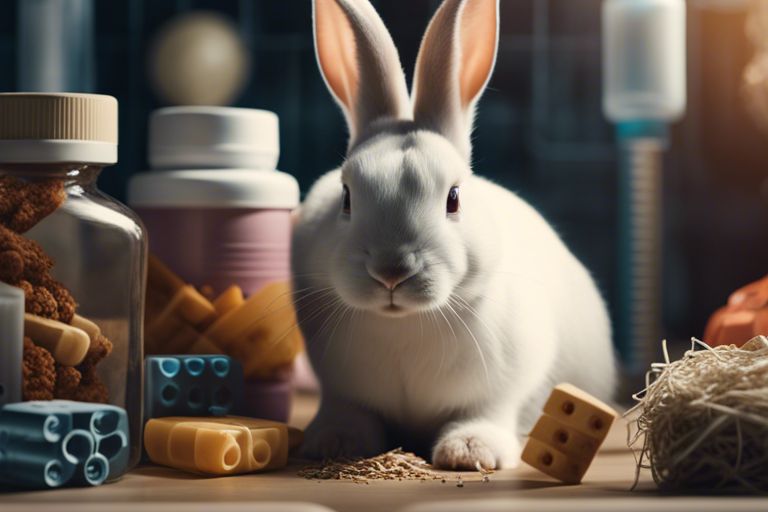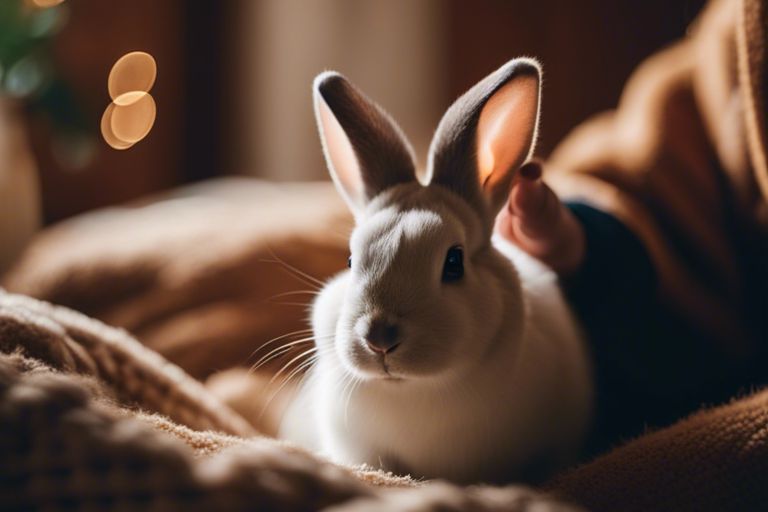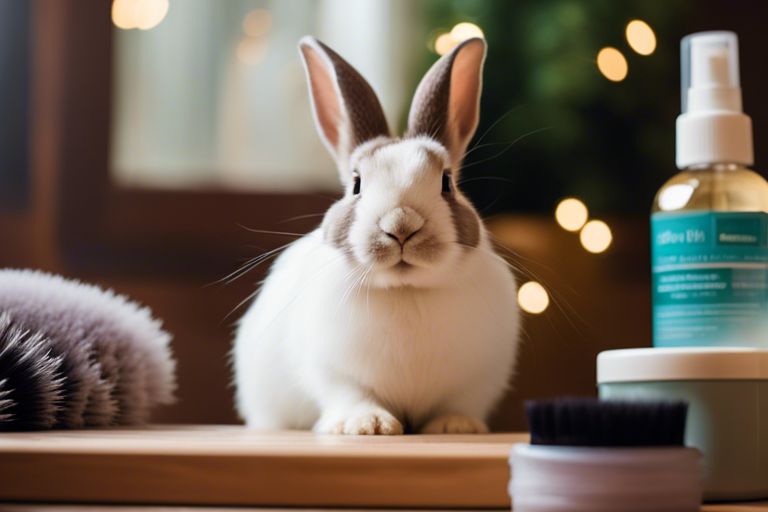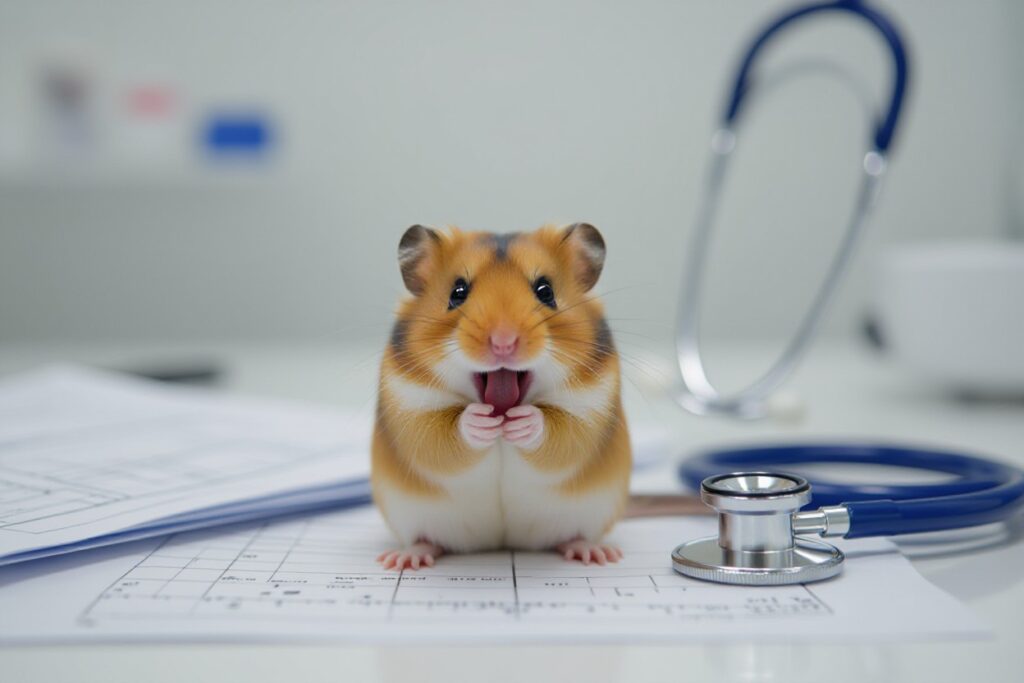This comprehensive guide will explore into the common health issues that rabbits face and provide necessary tips on how to prevent them. Rabbits are beloved pets for many, but they are also prone to various health problems that can affect their well-being. By understanding these issues and taking proactive measures, you can ensure your furry friend lives a long and healthy life.
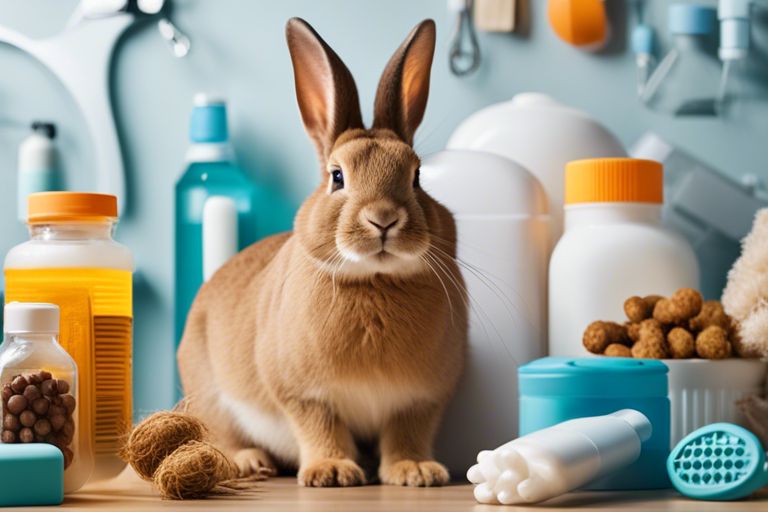
Basics of Rabbit Health Care
While rabbits can make wonderful pets, it’s important to understand the basics of rabbit health care to ensure they live long, healthy lives. Proper nutrition, clean and safe housing, and regular veterinary check-ups are necessary components of caring for your furry friends.
Proper Nutrition for Optimal Health
Health begins with what your rabbit eats. A diet rich in Timothy hay, fresh vegetables, and a small amount of pellets is necessary for their well-being. Hay helps maintain healthy digestion, while vegetables provide necessary vitamins and nutrients. Pellets should be fed in moderation to prevent obesity. Fresh water should always be available, as rabbits are prone to dehydration.
The Role of Clean and Safe Housing
Housing
Safe housing is vital for your rabbit’s health and happiness. Provide a spacious enclosure that allows for exercise and hopping. Make sure the enclosure has a solid bottom to prevent injuries to their delicate feet. Regularly clean the enclosure and provide fresh bedding to prevent the build-up of bacteria and keep your rabbit healthy.
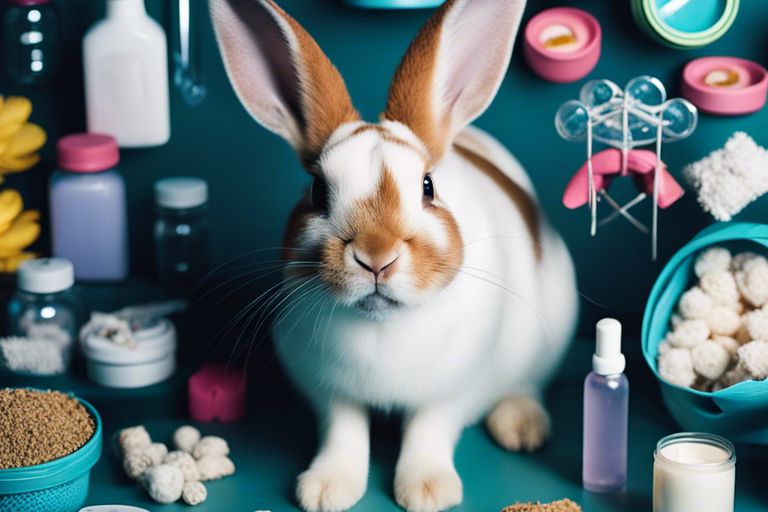
Common Physical Health Issues
The well-being of your rabbit is crucial, and being aware of common physical health issues can help you catch problems early. Regular veterinary check-ups and a keen eye for any changes in your rabbit’s behavior can make a significant difference in their overall health and happiness.
Dental Problems: How to Recognize and Prevent
One common health issue in rabbits is dental problems. Rabbits have continuously growing teeth, and if not worn down properly through chewing, it can lead to overgrown teeth, abscesses, and other dental issues. Signs of dental problems include decreased appetite, drooling, and reluctance to eat hard foods.
Gastrointestinal Stasis: Tips to Avoid This Silent Killer
One of the most critical health issues in rabbits is gastrointestinal stasis, also known as ileus. This condition occurs when the gut motility slows down or stops entirely, leading to a buildup of gas and potentially dangerous toxins in the digestive system. Signs of gastrointestinal stasis include reduced or no fecal output, decreased appetite, lethargy, and a hunched posture.
- Ensure your rabbit has a balanced diet high in fiber.
- Provide plenty of fresh hay and water.
Little more about Gastrointestinal Stasis: Tips to Avoid This Silent Killer
- Ensure your rabbit gets regular exercise to help maintain gut motility.
- Feed your rabbit a variety of leafy greens to promote digestive health.
Gastrointestinal stasis can be a life-threatening condition if not addressed promptly. If you suspect your rabbit may have gastrointestinal stasis, it is crucial to seek veterinary care immediately. With proper prevention measures and early detection, you can help your rabbit maintain optimal digestive health and overall well-being.
Infectious Diseases and Vaccinations
Myxomatosis and RHD: Understanding the Risks
Even though rabbits are commonly kept as pets, they are still susceptible to a range of infectious diseases. Two of the most common and deadly diseases that affect rabbits are myxomatosis and Rabbit Hemorrhagic Disease (RHD). Both diseases are caused by viruses and can spread quickly among rabbit populations. Myxomatosis is transmitted through biting insects like fleas and mosquitoes, while RHD is highly contagious and can be passed on through direct contact with an infected rabbit or through contaminated surfaces.
How-to Safeguard Your Rabbit with Proper Vaccinations
One of the most effective ways to protect your rabbit from myxomatosis and RHD is by getting them vaccinated. Vaccinations are crucial in preventing these diseases and can significantly reduce the risk of infection. It is recommended to consult with a veterinarian who specializes in exotic animals to determine the best vaccination schedule for your rabbit. Typically, a combination vaccine that protects against both myxomatosis and RHD is administered annually to ensure continuous protection.
Safeguarding your rabbit with proper vaccinations not only protects their health but also contributes to the overall well-being of your pet. By staying up to date on vaccinations and following your veterinarian’s recommendations, you can help your rabbit live a long, healthy life free from the risks of infectious diseases.
Parasitic Infestations in Rabbits
Many common health issues in rabbits are caused by parasitic infestations. These tiny organisms can cause a range of problems for your furry friend, from mild irritation to serious health issues. It’s imperative for rabbit owners to be aware of common parasites that can affect their pets and learn how to both identify and prevent them.
Identifying and Treating Ear Mites
Identifying and treating ear mites in rabbits is crucial for their overall health and well-being. Ear mites are microscopic parasites that can cause intense itching, irritation, and even infection in a rabbit’s ears. Symptoms of ear mites include scratching at the ears, head shaking, and a buildup of dark waxy discharge. If you suspect your rabbit has ear mites, it’s important to consult a veterinarian for proper diagnosis and treatment. Treatment typically involves thorough cleaning of the ears and the use of prescribed medication to kill the mites.
Preventing Fleas and Ticks: Step-by-Step Guide
Ticks
| Steps | Actions |
| Step 1 | Check your rabbit regularly for ticks, especially after spending time outdoors. |
| Step 2 | Use a fine-toothed comb to carefully remove any ticks found on your rabbit’s fur. |
| Step 3 | Consider using rabbit-safe tick prevention products recommended by your veterinarian. |
Preventing fleas and ticks in rabbits is imperative for their health and comfort. These parasites can cause irritation, transmit diseases, and even lead to more serious health issues if left untreated. By following a few simple steps, you can help protect your rabbit from these pesky invaders and ensure they stay happy and healthy.
Behavioral and Environmental Factors
Keep in mind that rabbits are highly sensitive animals that can easily become stressed in certain environments. It is vital to provide them with a peaceful and calm living space to prevent health issues related to stress. Some common stressors for rabbits include loud noises, sudden movements, overcrowding, and inadequate hiding spots. By addressing these factors, you can create a more serene environment for your furry friends.
Stress Reduction: How to Create a Peaceful Environment
- Avoid placing the rabbit’s living area near noisy appliances or high-traffic areas in the house.
- Provide hiding spots like tunnels, boxes, or huts where rabbits can retreat if they feel threatened.
- Establish a consistent daily routine for feeding, playtime, and interaction to help reduce anxiety.
This will help lower your rabbit’s stress levels and contribute to their overall well-being.
Enrichment: Preventing Behavioral Issues Through Stimulation
If you want to prevent behavioral issues in your rabbit, providing proper enrichment is key. Rabbits are intelligent creatures that need mental stimulation to stay happy and healthy. This can include toys, tunnels, puzzle feeders, and hiding places that encourage natural behaviors like digging, chewing, and exploring. By incorporating enrichment activities into your rabbit’s daily routine, you can prevent boredom and reduce the risk of destructive behaviors such as excessive chewing or aggression.
This approach not only keeps your rabbit physically active but also mentally engaged, which is crucial for their overall behavioral wellness. Make sure to rotate their toys and activities regularly to keep them engaged and interested in their environment.
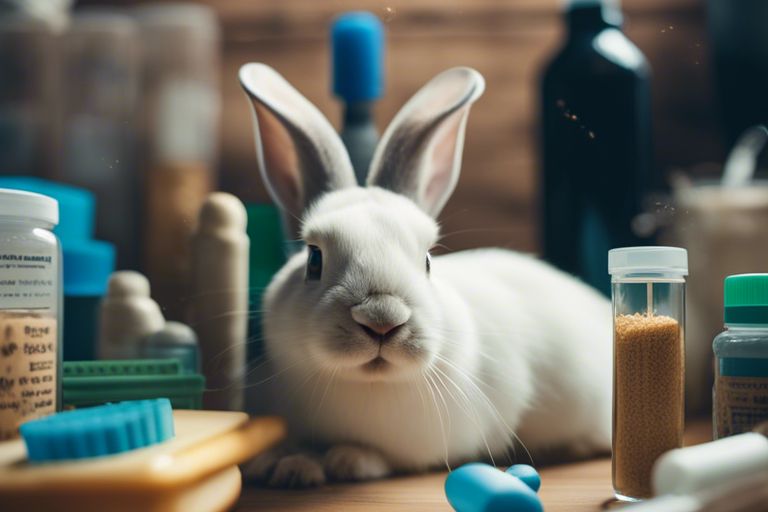
Routine Health Checks and Veterinary Care
Now that you have a beloved rabbit as a pet, it is crucial to prioritize their health by scheduling routine health checks and veterinary care. Regular visits to a rabbit-savvy veterinarian can help prevent common health issues and ensure your furry friend lives a long and healthy life. In addition to professional help, conducting home health assessments can aid in early detection of any potential problems.
How-to Conduct Home Health Assessments
The best way to conduct a home health assessment on your rabbit is by regularly checking their eyes, nose, ears, teeth, fur, nails, and weight. Look for any signs of discharge, overgrown teeth, matted fur, or abnormal behavior. A healthy rabbit should have clear eyes, dry nose, clean ears, shiny fur, trimmed nails, and a stable weight.
When to Seek Professional Care: Signs and Symptoms
Now, it’s vital to know when it’s time to seek professional care for your rabbit. If you notice any sudden changes in behavior, appetite, water intake, or litter box habits, it could be a sign of an underlying health issue that requires immediate attention. Additionally, symptoms like lethargy, diarrhea, difficulty breathing, or lumps/bumps on the body should not be ignored.
Signs of dental issues, such as drooling, reluctance to eat, or grinding teeth, are also red flags that warrant a visit to the vet. Any signs of pain, discomfort, or distress should be taken seriously, as rabbits are experts at hiding their symptoms until they are quite ill.
Final Words
Summing up, rabbits are susceptible to various health issues such as dental problems, GI stasis, and respiratory infections. These issues can be prevented by providing a proper diet, regular veterinary check-ups, a clean living environment, and plenty of exercise. It is crucial for rabbit owners to be vigilant and proactive in caring for their furry companions to ensure their well-being and longevity.
FAQ
Q: What are common health issues in rabbits?
A: Common health issues in rabbits include dental problems, gastrointestinal stasis, respiratory infections, and parasitic infestations.
Q: How can dental problems be prevented in rabbits?
A: Dental problems in rabbits can be prevented by providing a diet high in fiber, offering chew toys, and regular veterinary check-ups to monitor dental health.
Q: What is gastrointestinal stasis in rabbits and how can it be prevented?
A: Gastrointestinal stasis, also known as GI stasis, is a common condition in rabbits where their digestive system slows down or stops. It can be prevented by providing a diet high in fiber, encouraging exercise, and ensuring an adequate water intake.
How can respiratory infections be prevented in rabbits?
A: Respiratory infections in rabbits can be prevented by keeping their living environment clean and well-ventilated, avoiding exposure to smoke or strong odors, and minimizing stressors that can weaken their immune system.
Q: What are some ways to prevent parasitic infestations in rabbits?
A: Parasitic infestations in rabbits can be prevented by practicing good hygiene, keeping their living area clean, administering regular flea and parasite treatments as recommended by a veterinarian, and avoiding contact with other animals that may carry parasites.
